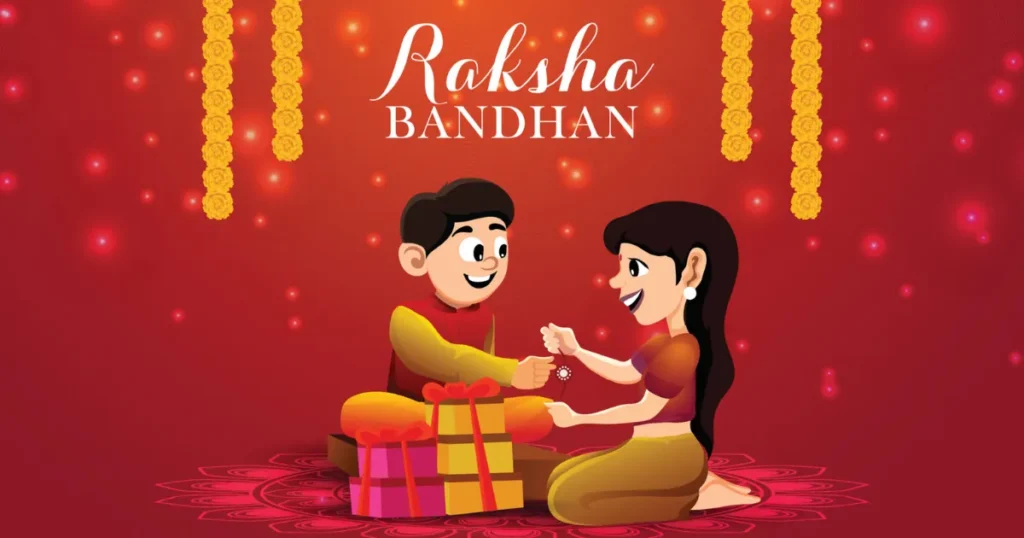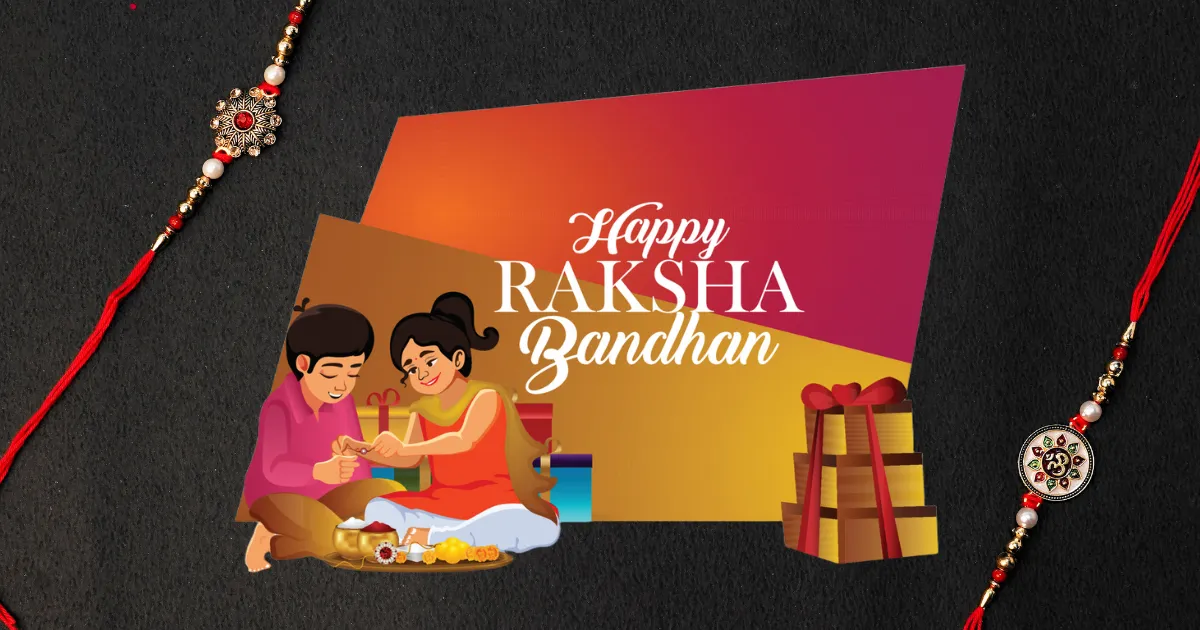Raksha Bandhan, celebrated with remarkable enthusiasm in Punjab, brings together siblings throughout the state for a day of love, protection, and heritage. But how is Raksha Bandhan celebrated in Punjab, and what is the fascinating history woven into this traditional festival? Let’s explore the what, when, where, and why of Raksha Bandhan in Punjab, updated with the latest public festivities, expert opinions, and timeless traditions.
What is Raksha Bandhan and How Is It Celebrated in Punjab?
Raksha Bandhan, popularly known as Rakhi, is a festival rooted in the bond between brothers and sisters. In Punjab, this vibrant occasion is known by different names—Rakhi, Rakhri, or Rakhsha Purnima—each reflecting the state’s rich linguistic and religious tradition.
The celebration in Punjab typically unfolds on the full moon day of the Shravana month (usually August). Sisters, dressed in colorful Punjabi attire, come together to honor their brothers. The air buzzes with excitement as markets across Punjab dazzle with brightly colored rakhis, sweets, and gifts. The preparation starts days ahead, with sisters shopping for intricate rakhis and brothers readying special presents.
The ceremony is marked by a special thali (tray) containing roli (vermilion), chawal (rice), rakhis, sweets, and a lit diya (lamp). Sisters perform aarti for their brothers, apply tilak on their foreheads, and tie the rakhi thread, symbolizing prayers for safety and well-being. Brothers, in turn, vow to protect their sisters and usually offer gifts in gratitude and love.
Community Spirit and Unique Punjabi Traditions
In Punjab, Raksha Bandhan goes beyond the home, often celebrated as a community event. Town squares and temples, especially around Amritsar and Ludhiana, host public gatherings and fairs. The most famous of these is the grand “Rakhar Punya” fair held annually at Baba Bakala near Amritsar, where thousands gather to pay respect, celebrate, and reinforce the spirit of togetherness.

Many organizations, schools, and even local police and army units participate in public rakhi tying ceremonies, making the festival a medium for promoting unity, peace, and fraternity. “Raksha Bandhan in Punjab isn’t just about siblings. It’s a day when everyone in the community comes together, reminding us of our shared commitment to each other’s well-being,” says Professor Harmeet Kaur of Punjabi University.
Feasting forms an essential part of the celebration. Sumptuous Punjabi meals and sweets like barfi and jalebi are prepared at home, and families spend the day together in a spirit of joy and harmony.
Also read | Uncover Iraq’s Abbasids Empire’s Glorious Legacy
A public response echoes this sentiment: “Every year, my sisters visit from Jalandhar. We laugh, share memories, and our families celebrate with food and music. For us, Raksha Bandhan means unity,” shares Balwinder Singh, a resident of Patiala.
The Sikh Influence and Historical Legacy
Punjab’s celebration of Raksha Bandhan is distinctively colored by its Sikh heritage. Though traditionally a Hindu festival, the spirit of Raksha Bandhan found new meaning in Punjab during the rise of Sikhism.
Historical records reveal that the Sikh Khalsa Army, in the 18th century, introduced the term “Rakhi” in Punjab as a promise to protect local farmers from foreign invaders in exchange for a share of their produce. This practice amplified the symbolism of the festival, transforming it into both a personal and communal pledge of security and support.
Sikh history holds famous stories—like Maharani Jindan Kaur sending a rakhi to the King of Nepal, who accepted her as a sister and offered her refuge after the Sikh empire’s fall. Such examples showcase Raksha Bandhan’s significance beyond family to form powerful alliances and friendships.
The Rituals Explained — Step by Step in Punjab
- Sisters arrive at their brothers’ homes, often traveling from afar, dressed in their finest dresses and jewelry.
- Preparations begin with the creation of a pooja thali: this is artfully arranged with roli, chawal, beautifully designed rakhis, and fresh homemade sweets.
- The ceremony starts with the sister performing an aarti, applying tilak on her brother’s forehead, and tying the rakhi on his right wrist. She then offers him sweets, and together they pray for a long, healthy life.
- In response, brothers give gifts, sweets, or sometimes even cash, expressing their gratitude and love.
- Celebratory meals, music, and community gatherings follow, reinforcing the joyous spirit of the day.
The Broader Meaning — Raksha Bandhan as a Symbol of Social Bonding
Raksha Bandhan in Punjab is not limited to blood relations. The festival often extends to friends, neighbors, and even armed forces personnel. In recent years, women and children tie rakhis to police, BSF jawans, and other protectors of the state—recognizing the collective responsibility of protection and gratitude.
Also Read | What Is Sikhism? A Comprehensive Guide To The Sikh Faith
Shops brim with rakhis of all varieties, from simple threads to ornate, handcrafted designs. School children organize rakhi tying ceremonies, promoting brotherhood beyond family boundaries. In villages, the festival also coincides with agricultural prayers for prosperity, echoing a wish for collective good fortune and safety.
History and Myths — The Roots of Raksha Bandhan
Raksha Bandhan’s origins stretch back nearly 6,000 years to the era of the Aryans and the Indus Valley Civilization. Legends abound:
- In the Mahabharata, Draupadi tears her saree to bind Lord Krishna’s wounded finger. Krishna vows perpetual protection in return—an epic illustration of the bond Raksha Bandhan celebrates.
- The medieval story of Rani Karnavati of Chittor, who sent a rakhi to Mughal Emperor Humayun, asking for protection from invaders. Humayun honored the request, marching with his army to aid her.
- In Punjab, the adaptation of this festival into the Sikh ethos of mutual support further deepened its meaning, blending spiritual, historical, and social roots.
The core message remains timeless: the affirmation of love, duty, and protection, not restricted by religion or region.
Raksha Bandhan and Modern Punjab
Today, Raksha Bandhan is a public holiday in Punjab, with its unique flavor of zeal, color, and warmth. The festival has also adapted to modern realities: virtual rakhi tying for siblings separated by distance, online gift deliveries, and social media posts sharing stories and family memories keep the spirit alive across generations.
Traditional fairs like the annual Rakhar Punya at Baba Bakala and community initiatives in Amritsar, Ludhiana, and Patiala continue to attract crowds, maintaining the cultural vibrancy of the festival.
FAQs: Raksha Bandhan in Punjab
What is Raksha Bandhan?
Raksha Bandhan is an annual festival where sisters tie a rakhi thread on their brothers’ wrists to celebrate love, protection, and lifelong bonds.
When is Raksha Bandhan celebrated in Punjab?
It falls on the full moon day of the Hindu month of Shravana, usually in August every year.
How is Raksha Bandhan celebrated in Punjab?
Sisters tie rakhis, perform aarti, and families feast together. The festival also features community events, public fairs, and gift exchanges.
Do Sikhs celebrate Raksha Bandhan in Punjab?
Many Sikhs observe the festival as a cultural tradition, infusing it with historical meaning and communal bonding, even as some distinguish its Hindu roots.
Are there public celebrations of Raksha Bandhan in Punjab?
Yes, with major fairs such as Rakhar Punya at Baba Bakala and community ceremonies held by schools, organizations, and even at security outposts.
What is the historical significance of Raksha Bandhan in Punjab?
The Sikh Khalsa Army popularized Rakhi as a symbol of collective protection, and the festival became deeply embedded in both Sikh and Hindu cultural identity.
On this auspicious Raksha Bandhan, Punjab sparkles with joy, laughter, and the heartfelt reaffirmation of bonds—whether among siblings, friends, or neighbors. From the floral rakhis in Patiala’s markets to the grand fairs at Amritsar’s Baba Bakala, Raksha Bandhan in Punjab echoes the spirit of unity, protection, and love.
- Hyalu-Cica formula calms and moisturizes dry and sensitive skin
- 5 layers of hyaluronic acid absorbs deeply into skin to provide long-lasting moisturization
- 5 layers of hyaluronic acid absorbs deeply into skin to provide long-lasting moisturization
As Professor Harmeet Kaur says, “The festival unites Punjab across faiths and generations. It’s not just about rituals, but about sustaining the spirit of care and togetherness in our lives.”
To all Punjabis and to siblings everywhere: celebrate Raksha Bandhan’s enduring promise—of protection, pride, and the strength of family, this year and always.
For more local stories, event updates, and Punjabi traditions, stay tuned to your trusted neighborhood news.



